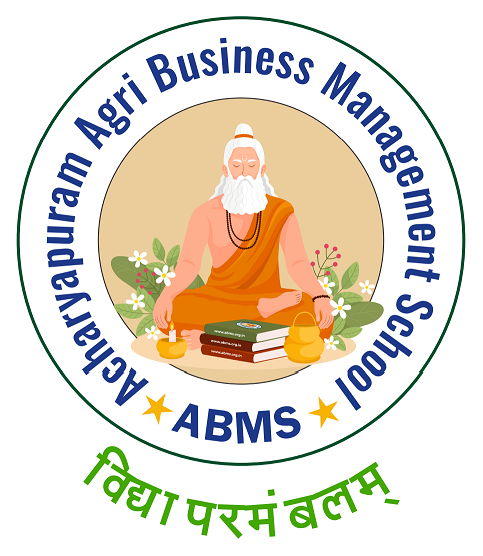Why Agriculture sector is the most important and growth opportunities in this sector for agriculture graduates
December 23, 2024 2024-12-23 7:44Why Agriculture sector is the most important and growth opportunities in this sector for agriculture graduates
Why Agriculture sector is the most important and growth opportunities in this sector for agriculture graduates
India’s agriculture sector is a cornerstone of its economy. It plays a crucial role in economic development, employment generation, and food security. India is an agrarian country whose over 40% its workforce is employed in Agriculture. Half of the population still depends on agriculture for earning livelihood. Improved domestic and international trade in the agribusiness sector is significantly enhancing job opportunities for agriculture graduates by expanding the scope of the sector and driving demand for skilled professionals. Some of factors for increased opportunities are Increased Market Access, Growth in Agri-Processing and Value Addition, Expansion of Agri-Tech and Digital Platforms, Export-Oriented Job Opportunities, Rise in Demand for Sustainable Practices, Increased Corporate Investments, Entrepreneurship Opportunities etc.
The total value of output from agriculture and allied sectors, including crops, livestock, forestry, and fishing, was significant in FY 2022-2023:
- Crops: ₹336.4 thousand crore for cereals and ₹434.7 thousand crore for fruits and vegetables, contributing to 54.3% of the agricultural output.
- Livestock: ₹878.5 thousand crore, accounting for 30.9%, with major contributions from milk, meat, and eggs.
- Forestry and Fishing: Combined accounted for approximately 14.8% of the output
Importance of the Agriculture Sector
- Contribution to GDP: Agriculture contributes approximately 14% to India’s GDP, and remains a significant sector that supports economic stability and growth.
- Employment Generation: Over 40% of India’s workforce is employed in agriculture, either directly or indirectly. This sector provides livelihoods to millions, especially in rural areas, remains a critical source of employment.
- Food Security: Agriculture is vital for ensuring food supply to a growing population, as India has seen the humiliation of being a food scarce nation, it becomes more important to have food security as most important aspect of India’s agricultural sector. With rising incomes, there is an increasing demand for diverse food products. The sector plays a key role in producing staple crops and livestock products necessary for nutrition and sustenance.
- Raw Material Supply: Agriculture supplies essential raw materials to various industries, including textiles (cotton), sugar (sugarcane), and oils (oilseeds). Recently with the blending of ethanol in fuel, a major priority of the central government to reduce import dependency and conserve foreign exchange is giving big boost to the agriculture sector. This interdependence supports industrial growth. A robust agricultural sector enhances the productivity of secondary industries by providing necessary inputs.
- Contribution to Exports: Agricultural products are significant contributors to India’s export economy. Items such as tea, spices, and cotton are major export commodities. The agricultural sector helps improve foreign exchange reserves through export earnings.
- Infrastructure Development: Agricultural development necessitates improved infrastructure such as roads, storage facilities, and transportation systems. This infrastructure benefits not only agriculture but also other sectors of the economy. Investments in agricultural infrastructure create jobs and stimulate economic activity.
- Rural Development and Poverty Alleviation: Enhancing agricultural productivity can reduce rural poverty by increasing farmers’ incomes and improving living standards. Agricultural growth contributes to social equity by providing opportunities for marginalized communities.
Growth and Career Opportunities for Agriculture graduates in this sector
- Diverse Career Paths: Agriculture graduates can pursue careers in various fields such as agribusiness management, agricultural research, extension services, food technology, and sustainable farming practices, consulting etc. Opportunities exist in both public sectors (government agencies) and private sectors (agri-tech companies, NGOs).
- Entrepreneurship: With the rise of agri-tech startups and innovations in sustainable farming practices, agriculture graduates have ample opportunities to start their own businesses. Government initiatives like the Startup India program support young entrepreneurs in the agricultural domain.
- Policy Making and Consultancy: Graduates can engage in policy formulation related to agriculture at local or national levels or work as consultants for agribusiness firms. Understanding agricultural economics can lead to roles in advising governments or organizations on best practices.
- Sustainability Focus: With increasing emphasis on sustainable practices due to climate change concerns, graduates specializing in sustainable agriculture will find growing demand for their expertise. Careers in organic farming, agroecology, and resource management are becoming increasingly relevant.
- Global Opportunities: As global trade in agricultural products expands, there are opportunities for graduates to work internationally in areas such as export management or international development projects. Organizations like the Food and Agriculture Organization (FAO) often seek professionals with agricultural expertise.
Overall agriculture sector remains a vital component of economic development and offers numerous growth opportunities for graduates entering this field. By leveraging their education and skills, agriculture graduates can contribute significantly to enhancing productivity, ensuring food security, promoting sustainability, and driving economic growth within their communities and beyond. The sector’s resilience amid changing global dynamics presents a promising landscape for future professionals dedicated to advancing agricultural practices.




